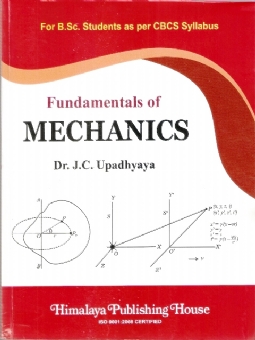Fundamentals of Mechanics
no information available
Present book, entitled 'Fundaments of Mechanics', has been written according to the new B.Sc. Physics Honours syllabus for students under Choice Based Credit System (CBCS). In fact, the course on mechanics forms the foundation of entire physics. This is why this course is taught first of all to the students in any physics syllabus at B.Sc. level. The course has been divided in three units and in the present book, it has been discussed in nine chapters. Unit - I deals with three chapters. First two chapters of this unit are related to rational dynamics in which the topics on centre of mass, angular momentum, torque and moment of intertia are discussed in sufficient detail. Non-inertial frames, involving the concepts of centrifugal force and Coriolis force, are described in chapter three. Unit - II is composed of four chapters of which first two chapters, namely Elasticity and Fluid Motion, deal with the properties of matter and rest two chapters are devoted to gravitation and central force motion. Oscillations, a phenomenon of extreme importance in nature as well as in physics, is discussed in one chapter in the last unit (Unit - III). This unit also deals with a chapter on 'Special Theory of Relativity' which results in the revolutionary ideas of space and time and Einstein's mass energy relation E = mc2*. In order to understand the basic concepts of Physics, it is necessary that the students have sufficient practice to solve the related problems. To stress this point, several Indian Universities have made compulsory to ask numerical problems in the examination paper. This is why we have given a sufficient number of selected informative and modern solved problems in few groups at different places inside a chapter and eash group of problems has been followed by an exercise (set of unsolved problems). Contents - 1. Rotational Dynamics - I (Centre of Mass and Angular Momentum) 2. Rotational Dynamics - II (Moment of Inertia) 3. Non-inertial Frames 4. Elasticity 5. Fluid Motion 6. Gravitation 7. Motion under Central Force 8. Oscillations 9. Special Theory of Relativity ... Read more Read less











